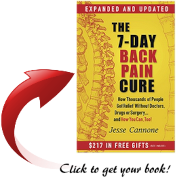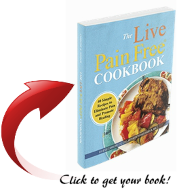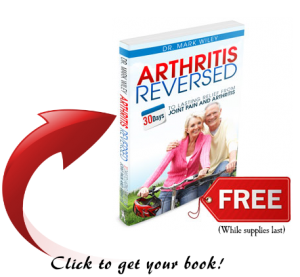Chronic pain can constantly push you off balance, make it impossible for you to focus, and severely hamper your quality of life. As challenging as the condition is inherently, the fact that other people just don’t seem to get it can make it worse. Flippant comments like “You look okay to me” and “You just have to get used to it” are commonplace, not to mention discouraging and demeaning.

Don’t despair, though. While challenging, chronic pain isn’t impossible to manage. In fact, countless people lead successful, fulfilling lives despite it – and so can you. In this mini-guide, PainFreeOutlet offers some pointers on looking after yourself and maintaining a satisfactory lifestyle when you have chronic pain:
Focus on maximizing the good days
Chronic pain can last months, years, or even a lifetime, says Creaky Joints. Fortunately, the intensity of the pain doesn’t remain constant. You will have good days, when the pain is just an itch in the back of your mind. You will also have bad days, when the pain creeps up and engulfs you. You can’t change or control this. What you can do, though, is maximize the good days, and minimize the bad ones.
Figure out your triggers
First, before you attempt to maximize your good days, it’s a good idea to understand your “triggers.” These are events or conditions that exacerbate your pain and lead to the onset of a bad day. They are different for everyone who has chronic pain, but all of them put pressure on an already-stressed system. Some examples are adverse weather, lifting weight, diet, heavy chores, sleeping wrong, poor posture, anxiety, and depression. Knowledge is power – understand your triggers so you can minimize them. Keep a journal or make notes, and think up solutions or workarounds to your pain points.
Pad out your various obligations with rest stops
You can’t always avoid your triggers. You may have to work hard to provide for your family or yourself, for instance. What you can do, though, is control your pace for maximum self-care. For instance, it’s a good idea to build in break periods in your schedule – think of an hour-long break between your various duties – so you can relax and re-energize. Furthermore, if you know a task is going to put you out of action, make sure you follow it up with a rest day.
Get physical help from people
You don’t have to do all your physical chores yourself – your friends and family may be happy to chip in. If not, you can always hire services. These services conveniently help you around the house and prevent you from aggravating your pain. For example, if the grass is looking wild and overgrown, you can look up lawn fertilization near me on Google for a company that specializes in lawn care. They can make and keep your lawn beautiful. You can evaluate companies by reading reviews online. Don’t forget to get a quote after discussing your needs. Some companies offer deals and credits if you’re worried about costs.
Find people who understand for mental and emotional support
When you’re in pain, and the people you know are being insensitive or uncaring, you may feel the need to withdraw or isolate yourself. Don’t! Instead, seek people who do understand. They are out there, and they care about you and can offer the mental and emotional support you need to get through the pain (check the resource section at the bottom for suggestions).
Adjust your environment to make it easier
Your environment can reduce your pain or aggravate it. Make sure it’s the former. You can organize your home, for example, to put the objects you need within easy reach, and downsize to reduce the maintenance and upkeep. You can adjust your car seats for better lumbar support, and mirrors for better visibility. Finally, you can get ergonomic furniture for your work desk to minimize your pain.
You may get angry and depressed
You’re going to get angry, sad, depressed, and maybe experience an existential crisis or two. Hope for the best, but prepare for the worst. Learn best practices for managing and maintaining your emotional and mental health (see resource section). Remind yourself that life can be wonderful, and there are things – and people – worth living for. Finally, build up a good support structure of people who can look after you when you can’t.
Minimize or eliminate the lashing out
Constantly being in pain is not easy to deal with. Some people deal with it by lashing out and taking it out on other people. If this sounds like you, learn to stop and look after yourself until you get back into balance. Also, be sure to apologize afterward. People aren’t responsible for your pain, have their own challenges, and don’t deserve bad treatment. Self-care will be your best friend at such times.
Look after your health
Staying healthy is necessary if you want to maintain a rich, fulfilling lifestyle. Good health will also reduce the intensity and impact of your chronic pain. Some suggestions:
- Exercise: Exercise will strengthen your body, not to mention work out the kinks, which can make the pain more bearable.
- Sleep more: Sleep will keep you optimistic and full of energy. Get plenty of sleep.
- Eat well: Nutritious food will also give you plenty of energy. Furthermore, it will help you maintain a healthy weight, which will reduce the stress being put on your body.
- Relax: Pursue activities that help you relax, such as playing games or being in nature.
Meditation can be a powerful tool
Meditation is a tool for finding and maintaining your mental and emotional balance. It allows you to dissociate yourself from the pain and avoid being consumed by it, reports the Atlantic. It’s the difference between drowning in pain and floating in it. It will take a while to get to the state, but it’ll be a worthwhile investment.
Resources for help and support
There’s always help to be had. Here are some excellent resources that will help you minimize and reduce your chronic pain:
- U.S. Pain Foundation: This fantastic resource offers everything you need, from information about your condition to best practices to living with it.
- Support groups: Support groups connect you with people who best understand and know how to manage the condition.
- PainFreeOutlet.com: Find handpicked natural pain-relief products and useful remedies.
- Miscellaneous resources: Take a look at 50+ resources and groups for chronic pain.
It does get better
The bad days can be overwhelming. Don’t be desensitized to your pain. It leads to a vicious self-destructive cycle. Instead, acknowledge it and give yourself the care you need so you can get back up, and live. Know that chronic pain gets easier to manage with time. Your bad days will reduce, and your good days will increase in frequency.
Conclusion
Your pain deserves to be acknowledged, and you deserve to be cared for. Your doctors, nurses, and friends and family can help in that regard. However, keep in mind the bulk of the responsibility for your care rests on your shoulders: After all, you’re the one living your life. Make an effort to look after yourself and manage your pain, and you will succeed in building and maintaining a fulfilling lifestyle.

I would like to thank Sheila Olson for providing another very informative and value-packed guest article. What an empowering piece with very useful references. A must read!
And do not forget to visit her web site at FitSheila.com to get great fitness tips!



